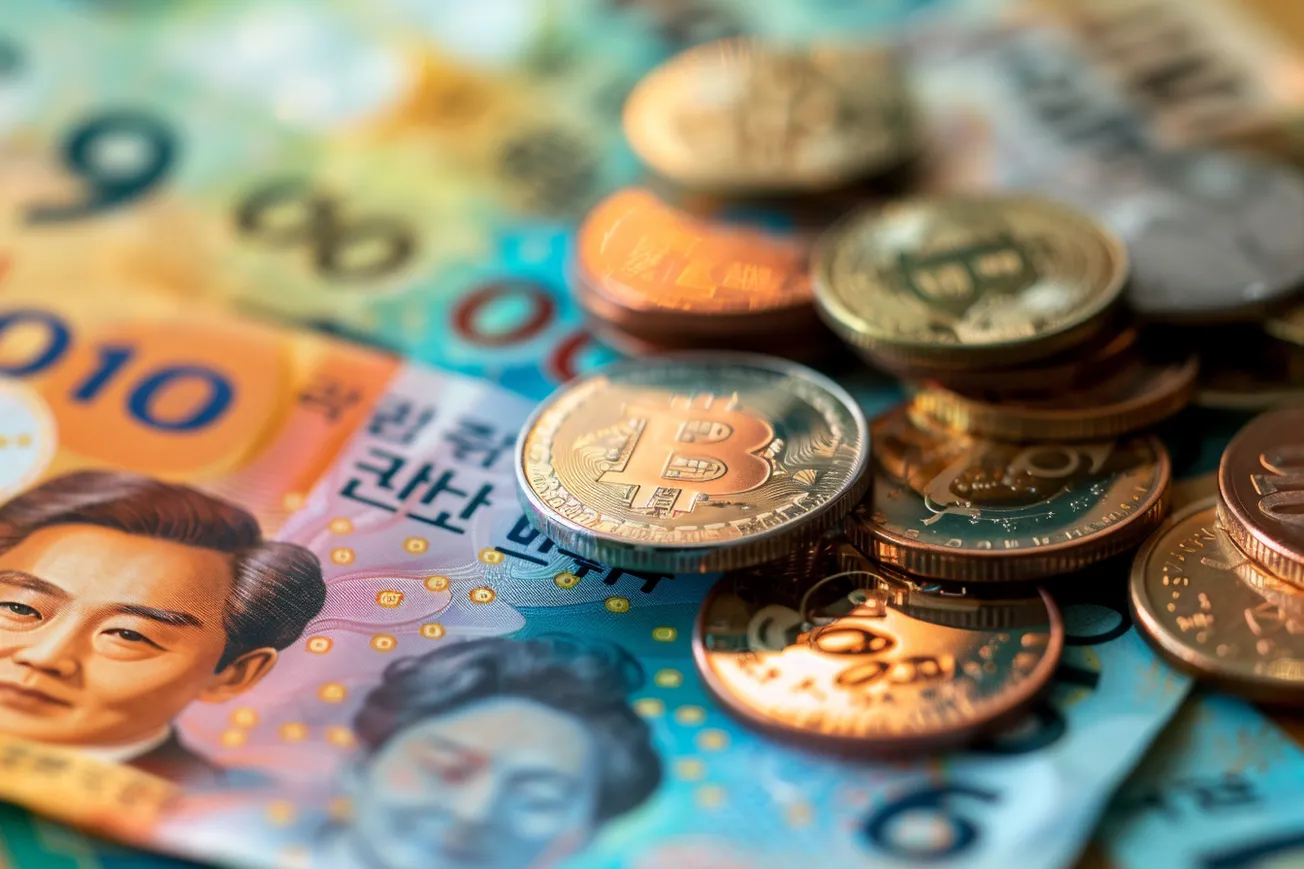Table of Contents
South Korea's won (KRW) is now the most traded currency against crypto, even overtaking the US dollar (USD).
According to Kaiko, KRW accounted for $456 billion in cumulative trade volume on centralized crypto exchanges in Q1 of 2024. USD's volume hit $455 billion over the same period.

The next largest currency traded against cryptocurrency is the Euro (EUR) but the European currency only accounted for a fraction of KRW's and USD's at just $59 billion.
KRW's large volume traded for crypto is due to Korea's ongoing fee war. “The improving macroeconomic environment and fierce competition among Korean exchanges has boosted trade volume on Korean markets which hit its highest level in more than two years in early March," Kaiko explained.
Korean exchanges Bithumb and Korbit have recently offered zero-fee trading promotions to lure users away from Upbit, which has a market share of 82% in spot trading volume.
More than 10% of South Korea's population participated in the country's crypto market via registered exchanges in the first half of 2023.
Traders in South Korea are more attracted to altcoins than blue chip cryptocurrencies Bitcoin and Ethereum. Smaller tokens make up more than 80% of trading activity in the country.
Korea also has a notoriously high premium on crypto trading. The phenomenon known as the "Kimchi Premium" is used to describe the phenomenon when cryptocurrencies trade at higher prices on South Korean exchanges compared to the rest of the world.
Last month, the premium returned to its two-year high of 10% as Bitcoin broke above its previous record.

Korea's liberal opposition, the Democratic Party, which recently experienced a landslide victory in the country's parliamentary election, has vowed to boost the local crypto industry.
Ahead of the election, the party pledged to lift regulations on ETFs, including spot Bitcoin ETFs. "We’re going to allow the ETFs, whether domestic or overseas,” Democratic Party policy specialist Hwanseok Choi said.










